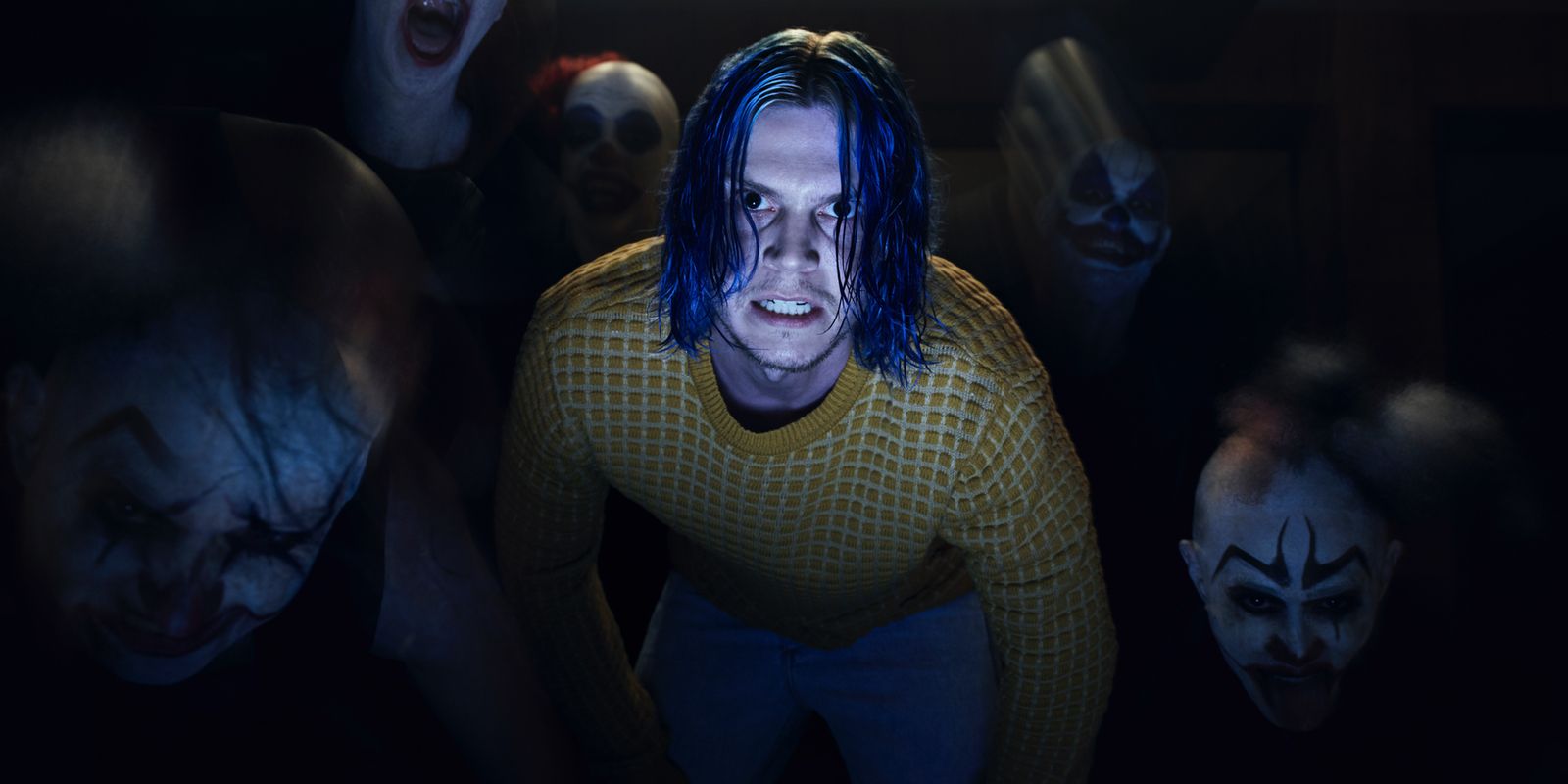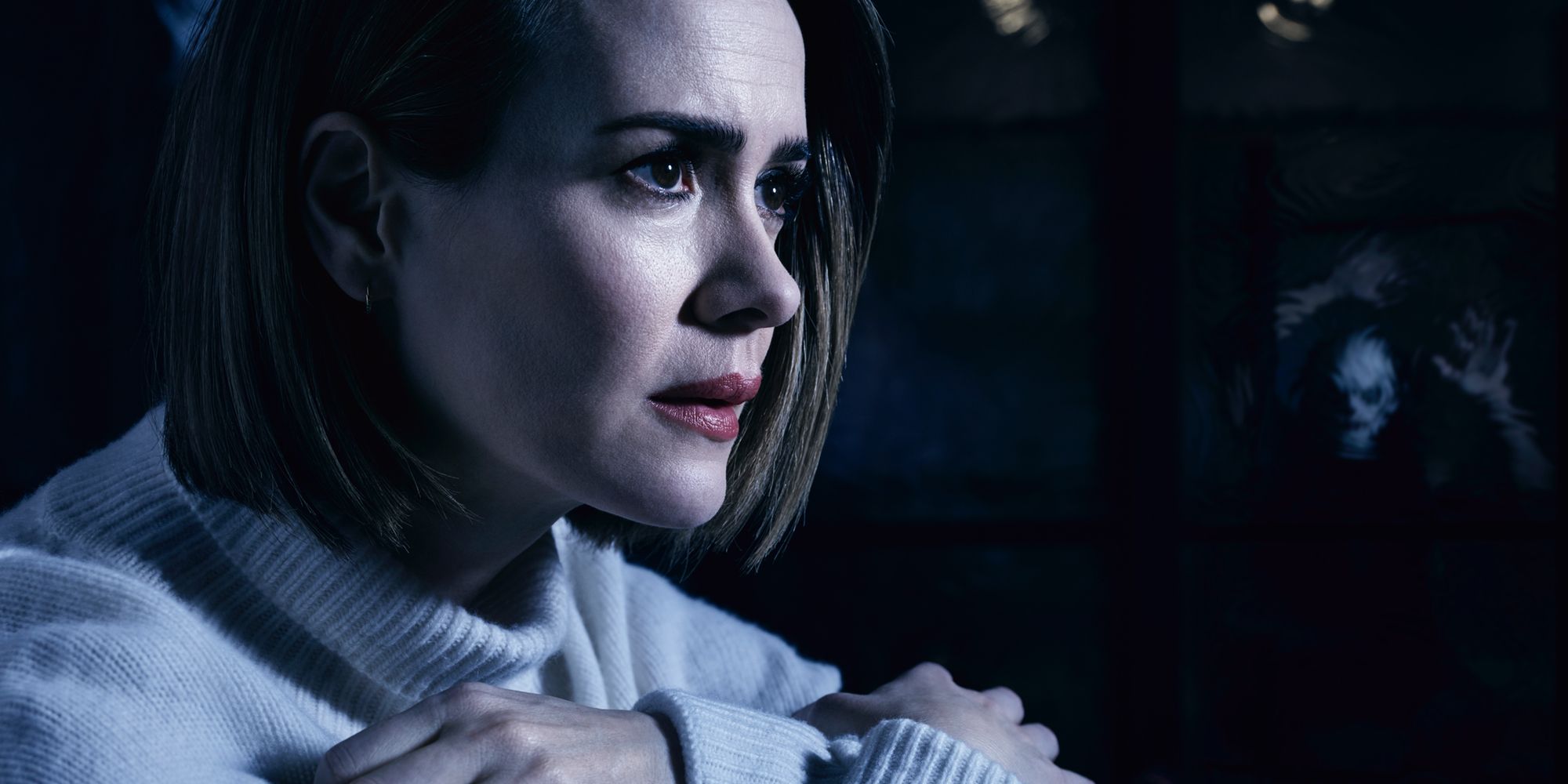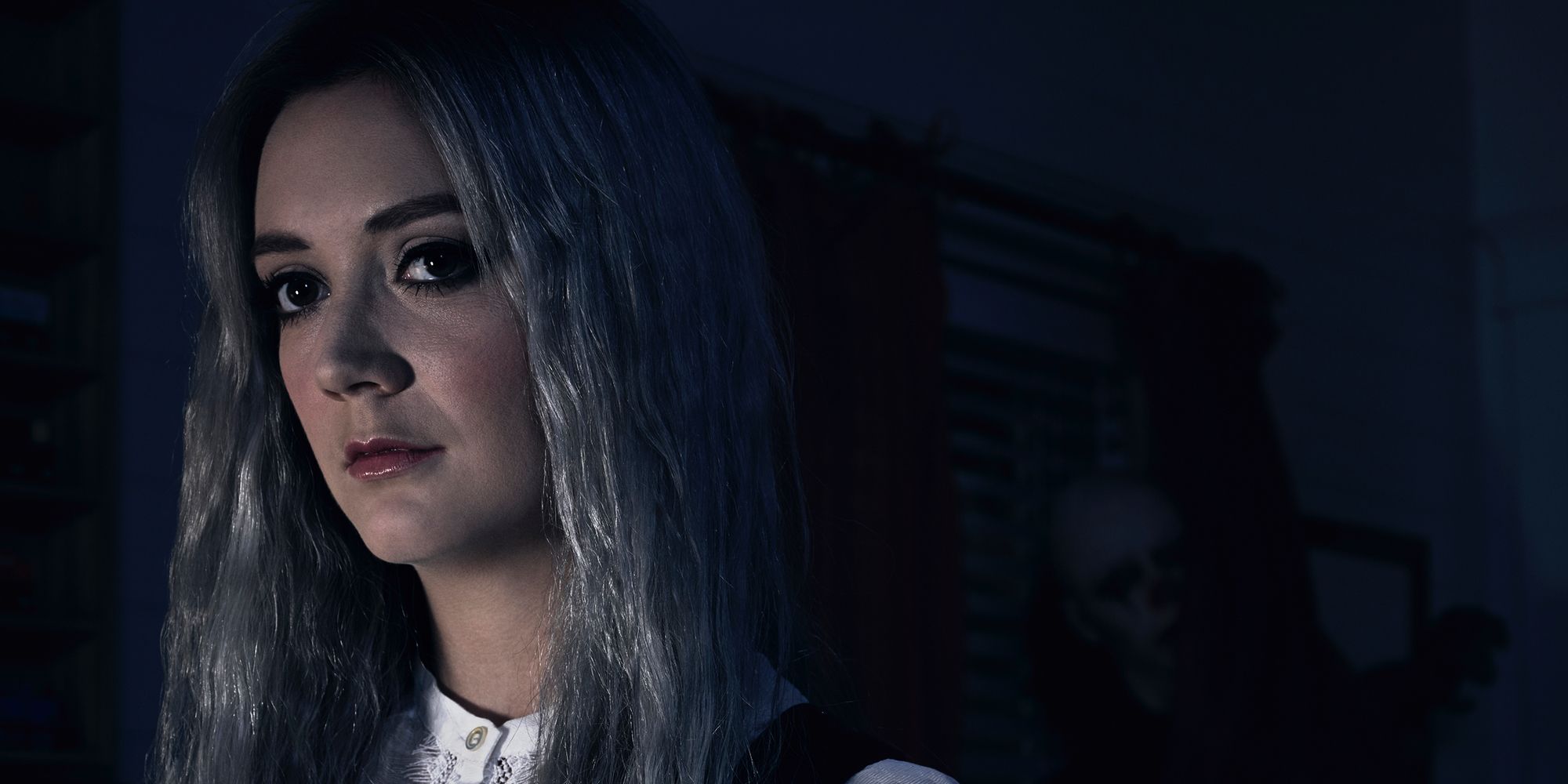American Horror Story moves away from the visual excess of past installments with Cult, a stripped down, timely tale of terror in post-Trump America.
As a show known primarily for its love of excess, extravagance, lush visuals, and complete and utter nonsense, American Horror Story has undergone a change of late. It's not appropriate to call it a creative resurgence necessarily, as the series still remains loyal to the "throw spaghetti at the wall and see what sticks" method of story development, but with the last two seasons, the long-running anthology from Ryan Murphy and Brad Falchuk has entered into a new phase of its evolution, first with Roanoke and now with American Horror Story: Cult.
Like it has from the beginning, the series wears its politics on its sleeve, but in Cult, Murphy and Falchuck push American Horror Story into an overtly political space, one where the goal of nearly every scene is to address, in the show's everything-and-the-kitchen-sink way of expressing anything, exactly how the show and its characters feel about the current political climate of the United States. Here, Sarah Paulson plays Ally, a Michigan restaurateur married to Allison Pill's Chef Ivy. A helicopter parent wracked with numerous phobias, and beset by present-day fears, Ally's experience trying to cope with an onslaught of negative post-election stimuli also acts as the engine that drives this season's stuffed and often overly obvious narrative.
Despite the stripped-down nature of Cult, which follows in the footsteps of Roanoke, last season's semi-reinvention of the series, the range of topics touched upon by the narrative is just as broad as ever. Much of what transpires does so via a familiar kind of spacey dream logic that keeps the show's head in the clouds, regardless how often the political references attempt to reposition the series closer to the ground. That much is made clear in the season's setting. Of all the locales that have played home to seasons of American Horror Story, Michigan seems as unlikely a place to capture the attention of Ryan Murphy, as Pyongyang is to host the Winter Olympics (Nuclear Winter Olympics, maybe). But considering the role the state played in the recent election, and with the water crisis continuing to unfold in Flint, suddenly Michigan finds itself as fodder for American Horror Story.
Assailed by social media and the 24-hour news cycle in the wake of the election that saw a reality TV show personality elected to the country's highest office, Ally's phobias are further compounded by her efforts to control the world around her, as a way of allaying those fears. But the needs of both a television series and a season of American Horror Story prevent Cult from spending all its time watching people respond to election coverage, breaking news, or Trump's incessant tweets. That need is both a blessing and a curse, as it's uncertain that American Horror Story's voice is one people are clamoring to hear above the din of chatter about the country's dismal state of affairs. But it also forces the narrative's hand to introduce Evan Peters' basement-dwelling Kai Anderson and a subplot about murderous clowns because, in addition to being in the news recently themselves, no one likes clowns.
Peters' Kai is a troll with some MRA and Jim Jones tendencies thrown in for good measure. Like most trolls, Kai feeds off the negative energy stemming from his efforts to offend and "speak the truth". As usual, that tough talk emanates beneath a thin skin whose favorite, oft-repeated phrase is a variation on: "A humiliated man is the scariest thing in the world." Cult goes full bore in its efforts to make Kai illustrative of the brand of toxic white American male that's seemingly been emboldened in the wake of the election, but the resulting characterization is a mostly surface-level collection of signifiers that gains traction primarily from a strong performance by Peters. Kai deals mainly in dread. He peddles in it while using the building anxiety of others to further his agenda of terrorizing Ally with the help of his sister Winter (Billie Lourd), and by being yet another wholly unqualified candidate to seek public office running on a platform that relies on his cult of personality and ability to capitalize on the power of fear.
The impression, of course, is that Kai is a clown. This opens the door for Cult to illustrate how dangerous such clowns can be by introducing a murderous group of them, presumably headed up by Kai. It also gives the season a chance to connect this story to past seasons by re-introducing Twisty, who has become something of an unofficial mascot for the series, as a fictional character in a seemingly popular line of horror comics read by Ally and Ivy's young son. Twisty's inclusion is less a celebration of seasons past and more a response to the recent clowning around of those looking to put a scare in others and maybe earn a few fleeting seconds of viral notoriety in the process.
It's a bit clumsy to draw a line between seasons like that, but it serves a larger purpose. The demotion of Twisty to the land of make believe sets Cult apart from other installments in the series. There is, as far as the first four episodes sent out to critics are concerned, nothing supernatural going on, making this the most based-in-reality (which isn't saying much) season of the anthology yet. It also puts an interesting spin on the marketing for Cult, which has included images of pale figures in clown makeup with honeycombs in the place of their exposed brains, and the striking image of a blue-skinned woman having her eyes forcibly opened by a pair of similarly shaded hands. For the first time in American Horror Story's long run, the marketing seems to be purely metaphorical – this time representations of Ally's phobias – rather than a collection of loosely connected images that never quite found their way on screen.
That is in keeping with the American Horror Story way of doing things. The series has always worked out its story through a series of interconnected sketches that sometimes help progress the overarching narrative and are sometimes just an excuse to deliver disturbing imagery, or convey a particular sentiment in no uncertain terms. Still, after the first four episodes, Cult establishes the most consistent through-line of any season in the series so far, as the overtly political nature gradually gives way to a focus on the ideological rift that births and breathes life into Kai's nightmarish cult of personality, the noxious appeal of which even Ally isn't entirely immune to.
As a follow-up to Roanoke, Cult delivers another slight reinvention of the series, one that aims to take more stripped-down and focused approach to the relative madness of a typical season of American Horror Story. Though Murphy's characteristic maximalist style is noticeably absent from a visual standpoint, it's still present within the narrative itself, making Cult an interesting deviation from the norm and possible blueprint from future seasons. Whether curiosity surrounding the series will be enough to convince viewers weary of the endless news cycle to tune in for a subtlety-free take on the current political climate remains to be seen, however.
Next: Twisty Returns in American Horror Story: Cult Motion Comic
American Horror Story: Cult continues next Tuesday with 'Don't Be Afraid of the Dark' @10pm on FX.
Photos: FX Network



